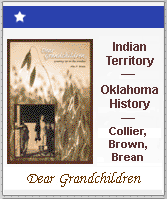
 |
 |
|
| |
||


How We Elected LincolnA.J. Dittenhoefer
<<Prev intro I II III IV V VI VII VIII IX Next>> page 34: IV HOW LINCOLN WAS FIRST ELECTEDNot long after the nomination I went to N Chicago and thence to Springfield . When I called at the modest Lincoln home, in order to offer my congratulations, I found him eager to obtain every ray of light upon the prospects of the coming campaign. "What are the chances of my election?" he asked, as he took my hand. "You are going to get the entire North," I replied, "on account of the Democratic division between Breckenridge and Douglas." "That is my own way of calculating," he assented, "but I am glad to get the views of everybody of experience in political matters." "Mr. Dittenhoefer is absolutely correct in his figuring," put in a bystander, and the glimmer of a smile of satisfaction passed over Mr. Lincoln's rugged countenance. I stepped back and stood looking and wondering. Typically Western he seemed to be in face, figure, and dress. How would page 35: he bear himself if called upon to direct the destinies of the Republic? Let me say frankly that, at this early day, no suspicion of his real greatness had ever entered my mind. I knew he was an able man, and I was content to hope that he might be, strong enough to cope with the coming crisis in national affairs. The Republican campaign, which began in earnest by the middle of June and lasted until the night before election day in November, differed in many respects from any other in my recollection. I believe that there was more sincerity of soul put into the efforts to win by fair means than has appeared in more recent national contests. A few days before the election of 1860 I made a speech at Cooper Institute, which began as follows:
This was repeated by numerous speakers on the stump throughout the country. Memories of these parades, stump speeches, and bonfires linger with me vividly. The marching clubs were called "Wide Awakes," and upon the oil-cloth cloaks, cut amply long in order to protect their wearers from the weather, the words "Wide Awake," in tall, white letters, were painted. Each page 36: man carried a swinging torch which maintained an upright position no matter how it was held. The campaign developed numerous parades of these "Wide Awakes" in cities and towns throughout the country. The Republican National Committee was not in possession of large funds, and each organization financed itself. It is doubtful if the National Committee had more than $100,000 to spend, and most of this went for printing and postage. There was no "yellow-dog fund" in those days. Had it been necessary for Mr. Lincoln or his managers to raise a half-million dollars, or go down to defeat, Lincoln would have lost out. Our "infant industries" had not yet been developed and "brought to a head by the poultice of protection." The late Senator Hanna would have regarded the prospects of a successful campaign without contribution from the protected interests as exceedingly doubtful. I threw all my energy into this campaign, and, though young, I was frequently making several speeches during a day and evening. I marched with the "Wide Awakes," and was sent to different parts of the State, where, with other speakers, I addressed large audiences. The temper of my hearers was not always encouraging. I have always doubted whether Seward's partisan adherents in central New York gave really page 37: loyal support to Lincoln, since it continued to rankle in their breasts that the sentiment of two thirds of the convention, originally in favor of Seward, had been turned to Lincoln through the machinations of Horace Greeley, Reuben E. Fenton—afterward Governor of the State of New York-and other prominent anti-Seward men. No attempt was made by the Republicans to campaign in the Southern States, where the breach existing between the Douglas and Breckenridge adherents was remorselessly unrelenting. The drift in those States was naturally unanimously in favor of Breckenridge, and it was early recognized that Douglas, though a Democrat, would not carry a single Southern State. In the North the contest lay between Lincoln and Douglas. Breckenridge and Bell counted comparatively few and scattered followers, and their names awakened no enthusiasm. Stephen A. Douglas was one of the best types of the American aggressive politician this country ever produced. I heard Douglas speak on several occasions. His figure was short and chunky, hardly measuring up to his popular title of the "Little Giant." He was very eloquent, but his campaign theme, "Popular Sovereignty," was never a drawing-card in the North, and the practical application of this doctrine was really restricted to the Territories, including "Bleeding page 38: Kansas." The many speeches that Douglas made throughout the North only had the effect of consolidating the opponents of "Squatter Sovereignty." The adoption by Southern States of the principle of "State rights," which in effect was only another name for the right of secession, was the reason advanced to justify the rebellion which broke out with such fury in later years; but the demand for the right to introduce slavery into new territory was, in my opinion, the impelling reason that finally made the Civil War inevitable. In the free States the division of the popular vote was chiefly between Lincoln and Douglas, while the slave States were largely for Breckenridge, with a minority for Bell, the "Silver-gray Whig" candidate. The totals in the two sections are interesting as matters of record:
Mr. Lincoln had 180 electoral votes to 123 for all the other candidates. Every free State , with the exception of New Jersey , went for him, and even New Jersey gave him four votes, the three page 39: remaining going to the "Little Giant." Breckenridge, with a much smaller popular vote than Douglas, had 72 electoral votes, while Douglas , with a larger popular voted, had only 12 in all. As Mr. Greeley accurately summed it up: "A united North succeeded over a divided South; a united South triumphed over a divided North." Let us remember that a majority of the members of the Supreme Court had shown strong Southern proclivities; the Senate was also largely anti-Republican, and the house of Representatives had a very mixed political complexion, owing to the fact that many of its members had been chosen in the October election preceding the Presidential election. Such was the national situation after the popular verdict had been declared in favor of Lincoln and Hamlin. The South could not reconcile itself to the result. Trouble was in the air, but the North did not yet realize the inevitability of civil war. It was a long, anxious winter for the President-elect, and the strain upon him then was even more noticeable than after he assumed the burden of his great office. He delivered his pathetic farewell address to his neighbors and friends in Springfield on February 11, 1861, and the following extract is entitled to a place in this record: page 40: My friends: No one, not in my situation, can appreciate my feeling of sadness at this parting. To this place, and the kindness of these people, I owe everything. Here I have lived a quarter of a century, and have passed from a young to an old man. Here my children have been born, and here one is buried. I now leave, not knowing when or whether I ever may return, with a task before me greater than that which rested upon Washington. Without the assistance of that Divine Being who ever attended him I cannot succeed. With that assistance I cannot fail. Trusting in Him who can go with me, and yet remain with you and be everywhere for good, let us confidently hope that all will yet be well. To His care commending you, as I hope in your prayers you will commend me, I bid you an affectionate farewell. Many of Mr. Lincoln's neighbors were in tears. I was not at Springfield on that day, but I heard directly from men who were present that the pain of separation was keenly felt by all classes of society. Mr. Lincoln left Springfield not to return.
<<Prev intro I II III IV V VI VII VIII IX Next>>
© 2006 Alta Omnimedia. This work may be used freely by individuals for research, teaching, and personal use as long as this statement of availability is included in the text. Feel free to point to this Web page if you'd like, but please don't just copy its contents. |
 |
Copyright © 2005-2016 Alta Omnimedia. All Rights Reserved.



